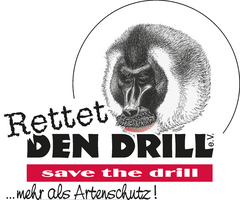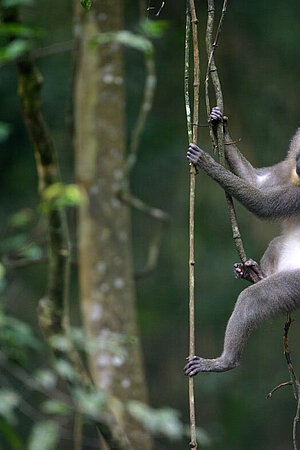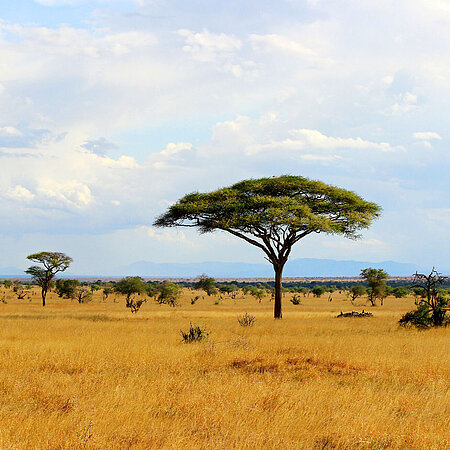
Whether they live on the vast plains of the Serengeti or in the Central African rainforest, habitat destruction, climate change, poaching and the bushmeat trade pose significant threats for many species in Africa.
Protecting the drill in Nigeria and Cameroon
Hellabrunn Zoo is a member of “Rettet den Drill e.V.” (Save the Drill), an association committed to the protection of the drill in their natural habitat. “Rettet den Drill” supports the Pandrillus Foundation, which operates regional projects in Nigeria and Cameroon.
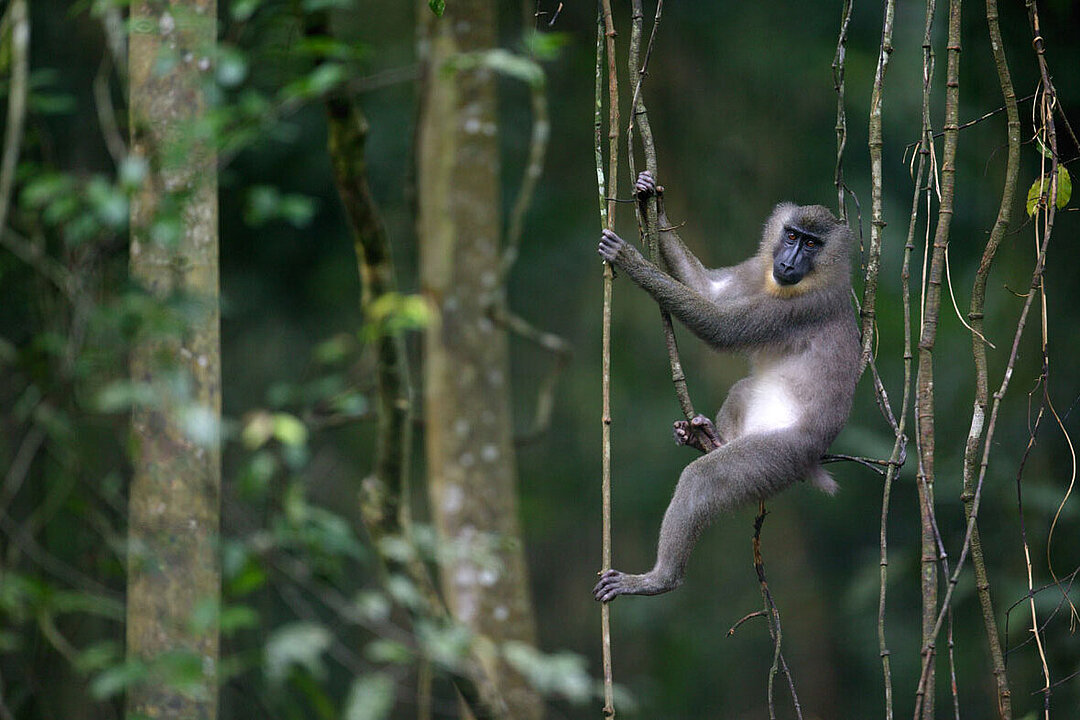
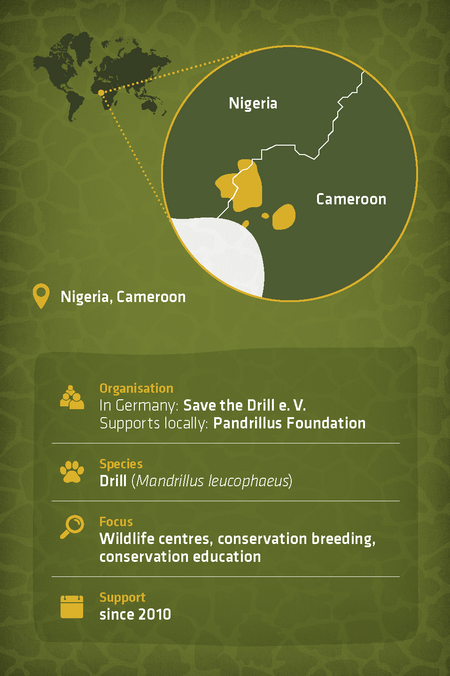
Endangered primate species
The drill is one of the most endangered primate species in Africa. The IUCN (International Union for Conservation of Nature) has included it in the Red List of the world's most threatened species. Only a few thousand individuals remain in its natural habitat, an area of merely 40,000 km² in Cameroon, Nigeria, and on the island of Bioko. This means that the entire global range of this largely ground-dwelling primate is smaller than Switzerland. There are many reasons for the sharp decline in population: habitat destruction through deforestation, regional infrastructure projects and mining as well as hunting and poaching are the main threats to the drill.
Educate and protect
The Pandrillus Foundation, which is supported by “Rettet den Drill”, operates two rescue centres for drills and other wild animals in Nigeria and Cameroon, as well as a 100 km² sanctuary in the Afi Mountains in Nigeria. The foundation works with local associations and representatives to combat poaching and preserve the drill’s natural habitat. The Limbe Wildlife Centre in Cameroon and the Drill Ranch in Nigeria provide a home for drills orphaned by hunting or confiscated by authorities, and their young. The stations are important employers for the local population and run education programmes in the region.
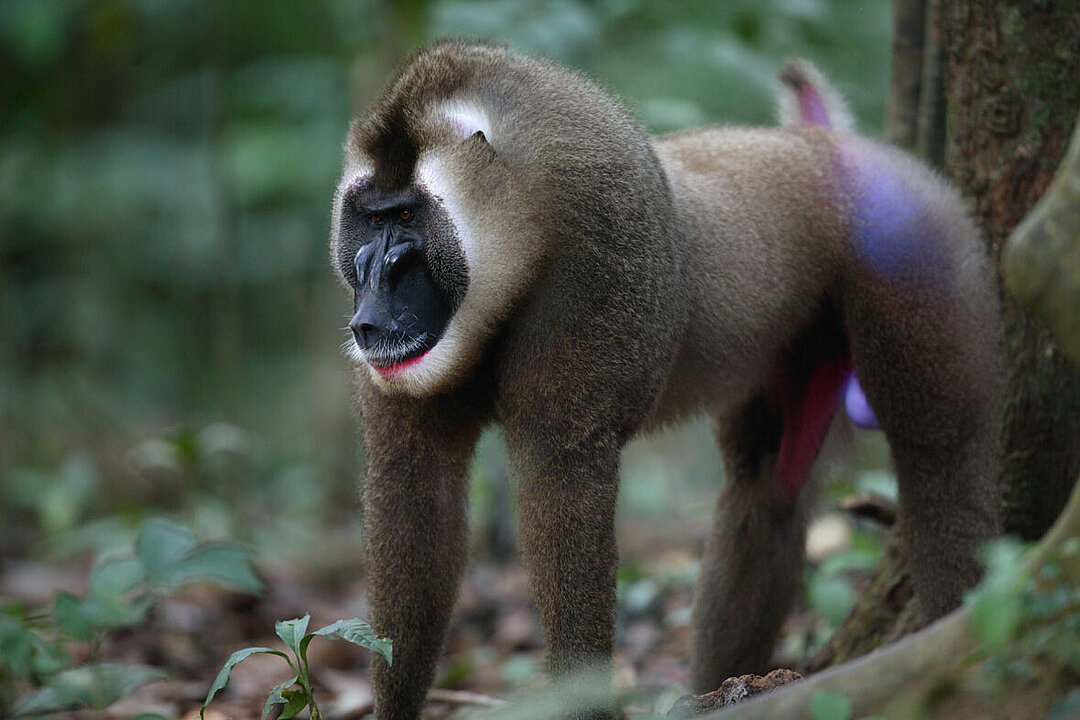
Conservation breeding and knowledge sharing
Hellabrunn Zoo has been entrusted with managing the EAZA Ex-situ Programme (EEP) and the International Stud Book (ISB) for the drills. The zoo is in regular contact with its project partners in Nigeria and Cameroon to share ideas on improving breeding. Drills are a rare sight in Europe: there are around 100 individuals in 16 different zoos. This fascinating primate species has been living at Hellabrunn since 2011. And almost every year since then, the group has produced offspring. Hellabrunn makes an important contribution to the preservation of this species on many levels: through its role as coordinator of European breeding, its support for conservation projects in West Africa and its breeding programme in Munich.
